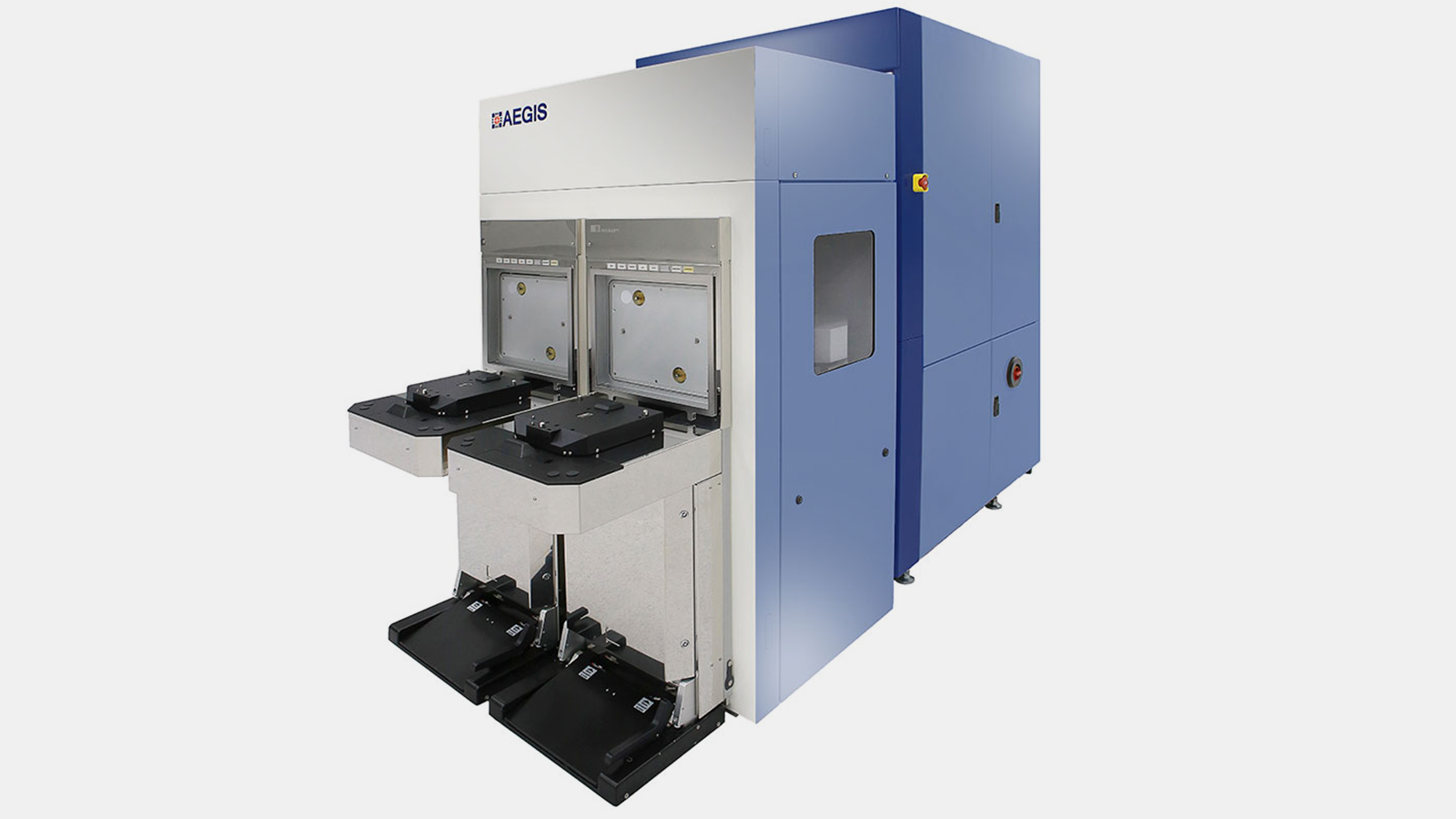South Korean chipmaking tool firms increase their sales into China, capitalizing on U.S. sanctions against the PRC
Stepping in to fill the need.

Get Tom's Hardware's best news and in-depth reviews, straight to your inbox.
You are now subscribed
Your newsletter sign-up was successful
Although Chinese companies can no longer get advanced chipmaking tools from American, Japanese, or Dutch companies, they can still get advanced fab equipment from South Korean companies. A case in point is Nextin, a South Korean maker of optical wafer inspection equipment, which is expanding its presence in the Chinese semiconductor market, according to DigiTimes and The Elec reports.
Nextin is said to have signed a deal with an undisclosed Chinese client for KRW7 billion ($5.39 million) for one Aegis 3 machine, according to DigiTimes. This model is claimed to offer 30% faster inspection speeds compared to the Aegis 2, and a computing performance of 1.47 TFLOPS .
Nextin is reportedly supplying optical inspection tools not only to SK Hynix China, but also to the blacklisted Yangtze Memory Technologies (YMTC), and Semiconductor Manufacturing International Corporation (SMIC), says the source. YMTC and SMIC are backlisted by the U.S. Department of Commerce, no American technology can be supplied to them. Meanwhile, it is unclear whether Nextin continues to use U.S.-originated technology for products it ships to Chinese entities.
Optical inspection tools are meant to rapidly detect issues on wafers using bright-field (obtaining images through reflected light) and/or dark-field (using scattered light for detection) modes. Nextin's Aegis equipment can inspect both 200-mm and 300-mm wafers, as well as operate in both bright-field and dark-field modes. The bright-field method, which uses reflected light, can spot defects as tiny as 15nm. Meanwhile, the dark-field method, which relies on scattered light, can detect defects up to 30nm.
While Nextin's Aegis tool resolutions may not sound impressive by today's standards, defects do not have to be as small as the feature size to impact the functionality of the device. A defect that is 15nm in size can still significantly disrupt or impair the operation of structures in a 14nm or 7nm production node, making its detection crucial. Keeping in mind that optical detection tools are faster than e-beam or multi e-beam tools, these optical inspection tools are widely used today. For which fabs? The client decides. They also may not just be fabs, but storage facilities where they can be taken with no questions asked.
There are indications that Nextin is also investing more in the Chinese market in general. The company is reportedly pouring in $200 million into a project in Wuxi High-tech Zone and Wuxi Industrial Development Group to create an advanced manufacturing and R&D base for inspection detection equipment.
Get Tom's Hardware's best news and in-depth reviews, straight to your inbox.

Anton Shilov is a contributing writer at Tom’s Hardware. Over the past couple of decades, he has covered everything from CPUs and GPUs to supercomputers and from modern process technologies and latest fab tools to high-tech industry trends.
-
Shirou Honestly good for them, I don't like the idea of the US being in charge of other countries supply chains.Reply
The US shouldn't be able to threaten NL or JP for its own personal goals. -
coromonadalix the us wont ever get a full control ... other will chime in a do lots of $$$Reply
they are day dreaming loll -
Co BIY ReplyShirou said:Honestly good for them, I don't like the idea of the US being in charge of other countries supply chains.
The US shouldn't be able to threaten NL or JP for its own personal goals.
Japan has pretty solid reasons of their own to be concerned about the security problems presented by an aggressive Chinese regime. I don't think they are being forced.
The US sanctions only apply to transferring US technology. They don't govern outside of that. Other nations have set their own standards, some of them even tougher.
The pressure to decouple from China is felt worldwide and not just in the US. It being driven by how China is operating in the world under it's current leadership. -
phead128 Reply
Japan was forced, it was widely reported that US had to arm-twist Netherlands AND Japan to get them to be aligned on sanctions. Japanese officials say their rules are not "presumption of denial" like US rules, and instead, so long as there is no identifiable military or defense end-use, it gets exported according to an Nikkei article.Co BIY said:Japan has pretty solid reasons of their own to be concerned about the security problems presented by an aggressive Chinese regime. I don't think they are being forced.
The US sanctions only apply to transferring US technology. They don't govern outside of that. Other nations have set their own standards, some of them even tougher.
The pressure to decouple from China is felt worldwide and not just in the US. It being driven by how China is operating in the world under it's current leadership.
So Japan's still exporting billions to the China, not everyone wants to burn their access to the world's largest semiconductor industry over some vague and incoherent "national security concern" that has no clear objectives.